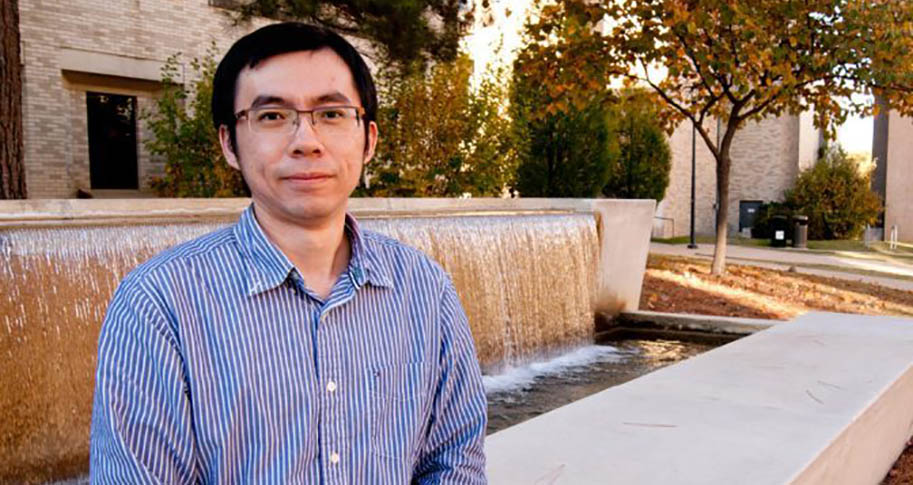
Difei Geng doesn’t teach students. He shares with them.
“By sharing, you don’t have to agree with me,” Geng says.
And when students don’t, it often leads to interesting discussions. Midway through a class lecture, Geng may pause and ask his students to provide feedback. Instead of balking when a student raises an alternative viewpoint or offers constructive criticism, he listens. “I have learned tremendously from the students,” he says.
Geng joined the Sam M. Walton College of Business in August 2016 as an assistant professor of economics. He teaches both undergraduate and graduate international trade courses.
Arkansas is a long way from his hometown of Tianjin, China, the fifth largest city in the country. Geng earned his bachelor’s degree from Tianjin University of Finance and Economics where he learned that economics was more than he initially thought. “It’s a very important, useful tool to understand how the world works,” he says.
Which, of course, meant embarking out in the world.
After completing his master’s degree in economics at Nankai University, also in Tianjin, Geng moved to the United States to study economics at Southern Methodist University in Texas and then at Vanderbilt University in Nashville, Tennessee, where he earned his Ph.D.
While in the United States, he got to meet people affiliated with Walton. At SMU, he was taught by Bo Chen, a former UA student. Andrew Horowitz, a Walton economics professor, visited Vanderbilt while Geng was a student there.
Then Geng visited Walton himself – this time to interview for his first faculty job. He found the economics department a good match for him with a friendly, collegial department. He was pleased when he discovered faculty members would rather collaborate than compete.
Geng’s research includes studying the protection of intellectual property internationally. Geng has looked at whether countries should implement nondiscriminatory intellectual property protection across domestic and foreign firms, a fundamental principle upheld by the World Trade Organization. He says he and his co-authors found that, quite surprisingly, if there exist trade frictions, then discriminatory intellectual property policy – such as countries protecting domestic firms better than foreign firms – would increase innovation and welfare. His findings were published in the Journal of International Economics.
Geng’s work has also been published in the Asian Economic Policy Review and the Journal of Public Economic Theory. His research interests extend to international economics, industrial organization and development economics.
Since coming to the United States a few years ago, he has absorbed the culture. He went to a performance of the Nashville country music radio program, the Grand Ole Opry, and says he was pleased to see older, legendary musicians still performing and celebrated. “I hope I would still be an active economist when I’m in my 80s,” he says.
Away from work, Geng enjoys music, which includes learning the guitar, and hopes to find others at the University of Arkansas who shares his passion for playing and watching soccer. He also spends time with his wife and son.
And he has plenty to share at Walton.
“As long as I can affect one or two students in their understanding of the economic world, I will be very satisfied,” he says.




